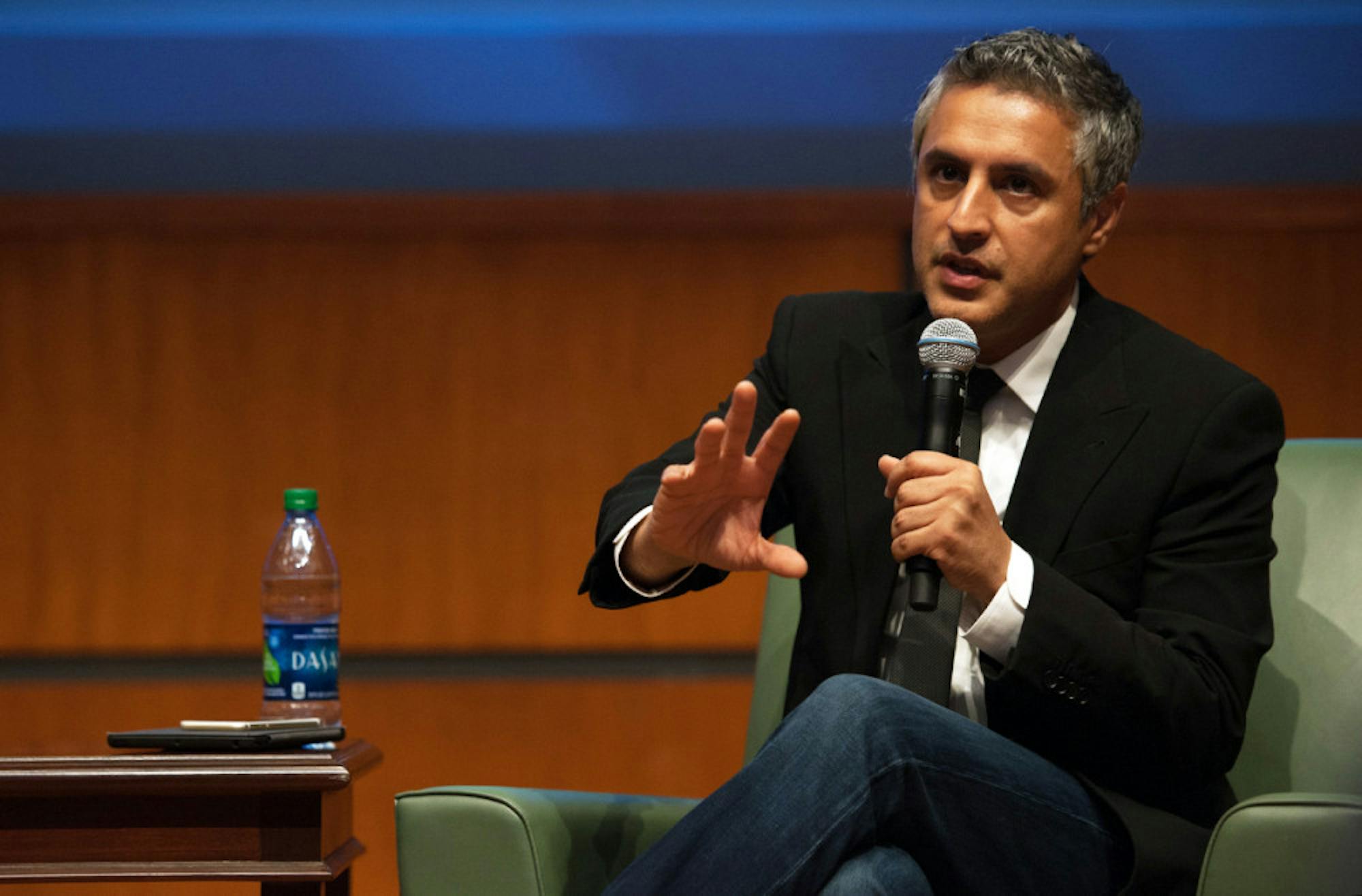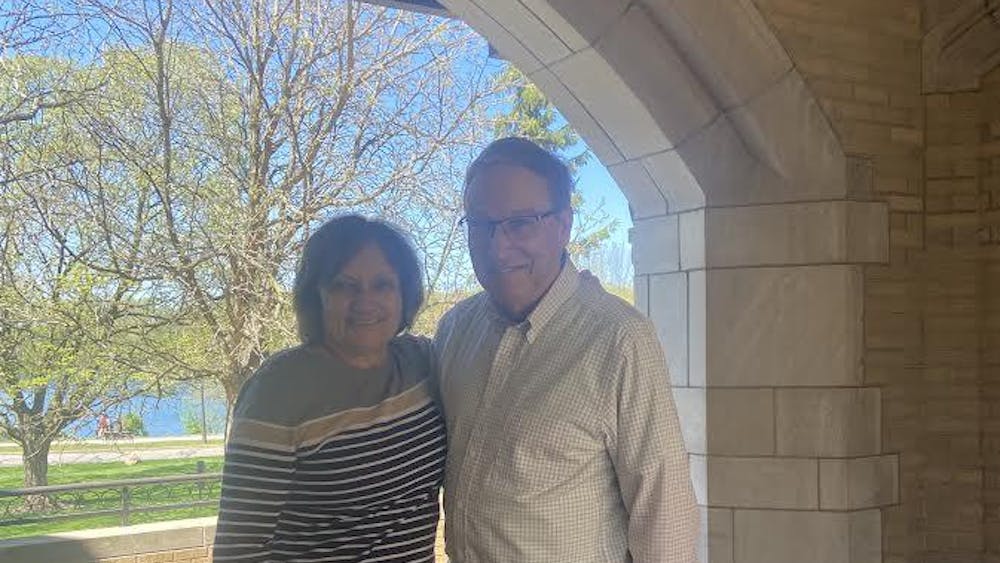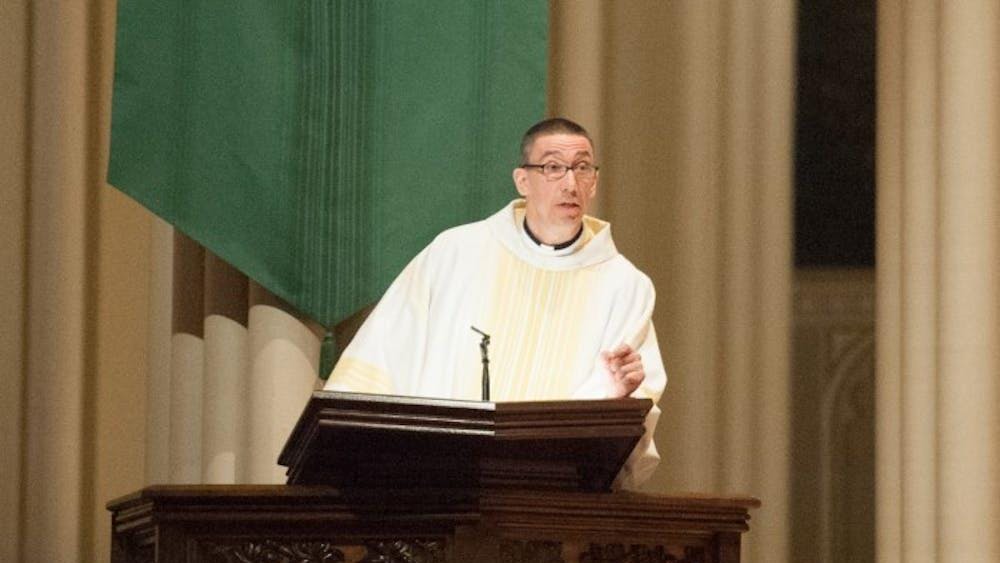According to Reza Aslan, more than 49 percent of American’s are scared of becoming a victim of terrorism.
Aslan, an internationally acclaimed writer and scholar of religions, spoke on campus yesterday in a lecture titled “Islam and ISIS” hosted by the Dean's Fellows of the College of Arts and Letters. The lecture, in which Aslan tackled the topics of religion and violent extremism, attracted to many students that there were more than four filled overflow rooms to accommodate those who would not fit in the Jordan Auditorium in Mendoza.
“You are, according to the FBI statistics, more likely to die from faulty furniture, than to be killed by a terrorist. You are more likely, in this country, to be shot by a toddler than killed by a terrorist,” Aslan said. “However, we cannot dismiss this fear by calling it irrational, we must recognize it and we must confront it.”
According to Aslan, one percent of Americans identify themselves as Islamic, while 73 percent of American’s identify as Christian. The prominence of a religion in any state makes it easier to dissociate violent acts with religion, he said.
“We live in a country where, according to the Pew Forum on Religion and Public Life, 73 percent of [people] consider themselves Christians," Aslan said. "When you live in any kind of society where you are surrounded by Christianity in all its diversity, it becomes very easy to dismiss fringe versions of Christianity.
“It is much easier to disconnect that behavior with the religion of Christianity. When we see acts that represent the fringe of Islam, as we are not familiar with normative Islam, we are unable to dissociate it with the religion.”
According to Aslan, there are two typical responses to Islamic extremism; the first is “Islam is not like that,” and the second is, “Islam is exactly like that.” However, Aslan said both these answers are incorrect.
“I understand the impulse of any community of faith when confronted with extremists to say ‘that is not us,’” Aslan said. “But this is wrong. It is incorrect because a Muslim is whoever he or she says is a Muslim. Those who act violent in the name of Islam — we must take that seriously.”
Aslan emphasized that all religions have violent fringe groups. He credits this to the rise of religious nationalism around the world. According to Aslan, the failure of secular nationalism led to this religious nationalism.
Aslan also made a distinction between Islamism and Jihadism. He noted that these terms are often used interchangeably, there is a remarkable difference between them. Aslan defined Islamism, as a type of religious nationalism, that most contained within the borders of a pre-determined state.
In contrast, he defined Jihadism is transnational, yet anti-national. According to Aslan, Jihadists do not want to create an Islamic State, Jihadists want to rid the world of states in general, and re-organize the global as a single world order under their control.
“There is a fundamental misunderstanding of what we mean when we say religious. We get caught in this polarization,” Aslan said. “Religion, it’s important to recognize, is not just an order of belief and practices. Religion, above all us, is a matter of identity.
“It’s about how you are, how you identify yourself in an indeterminate world,” Aslan said. “It is not a faith statement; it is an identity statement.”












